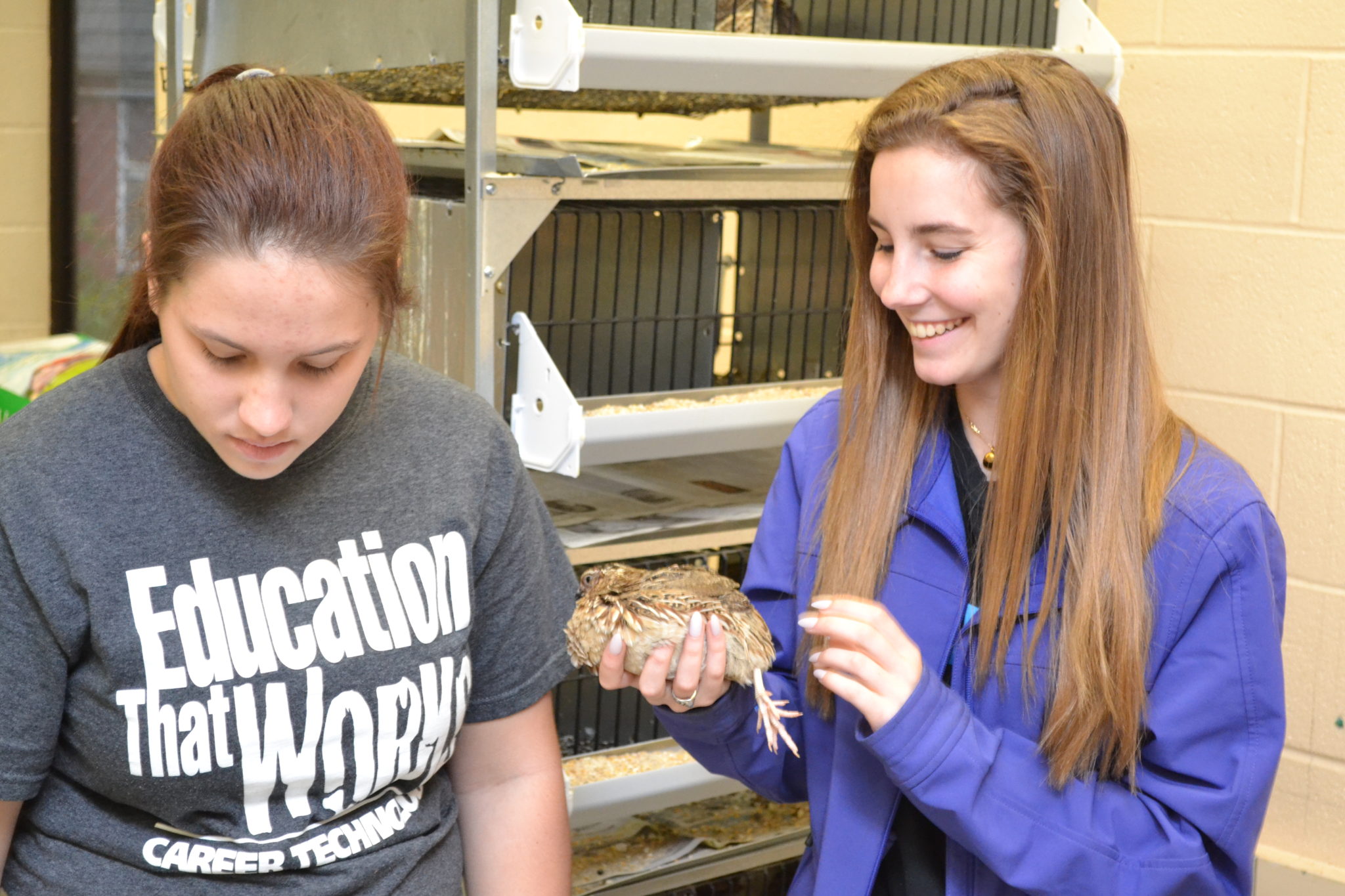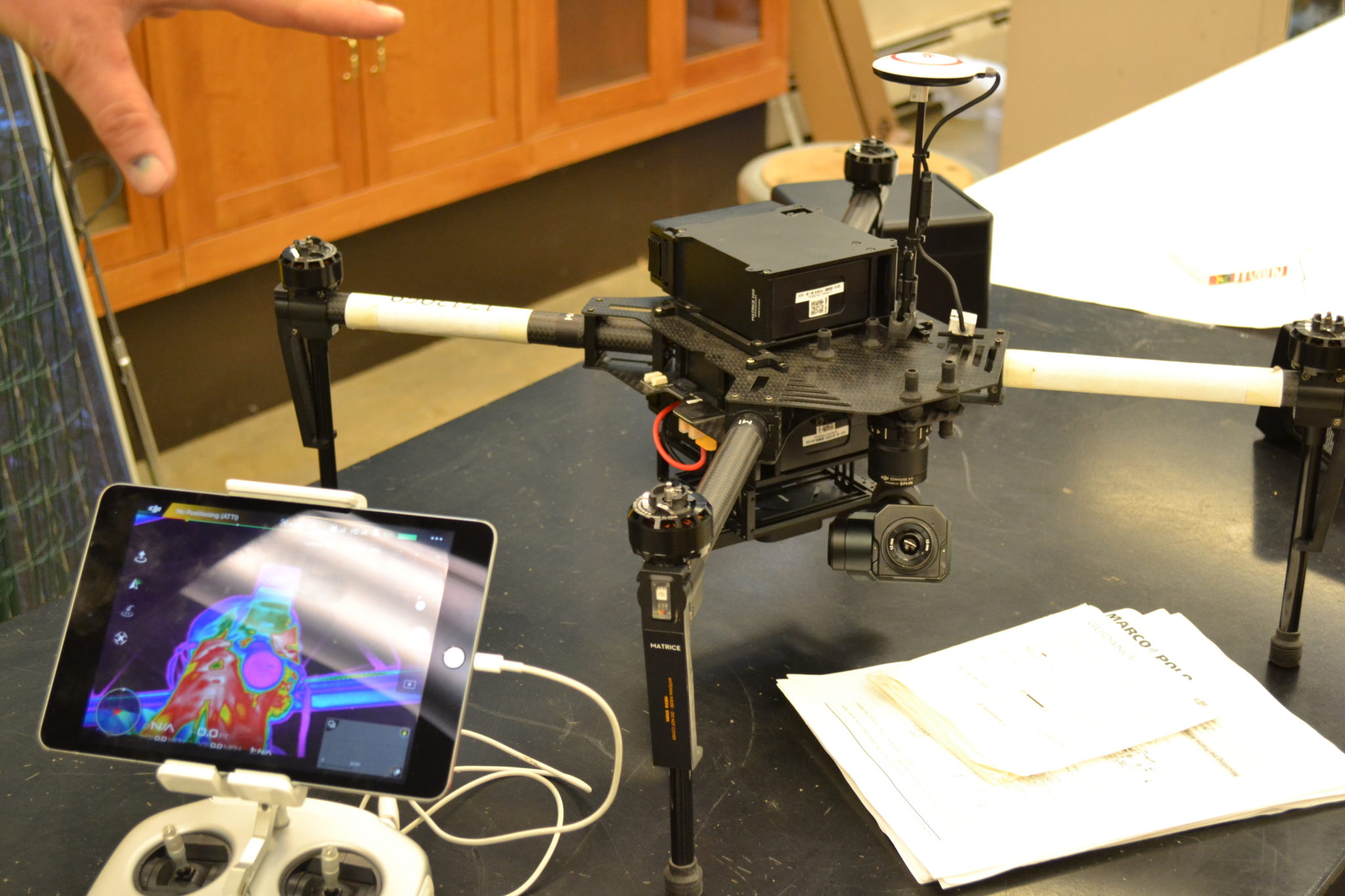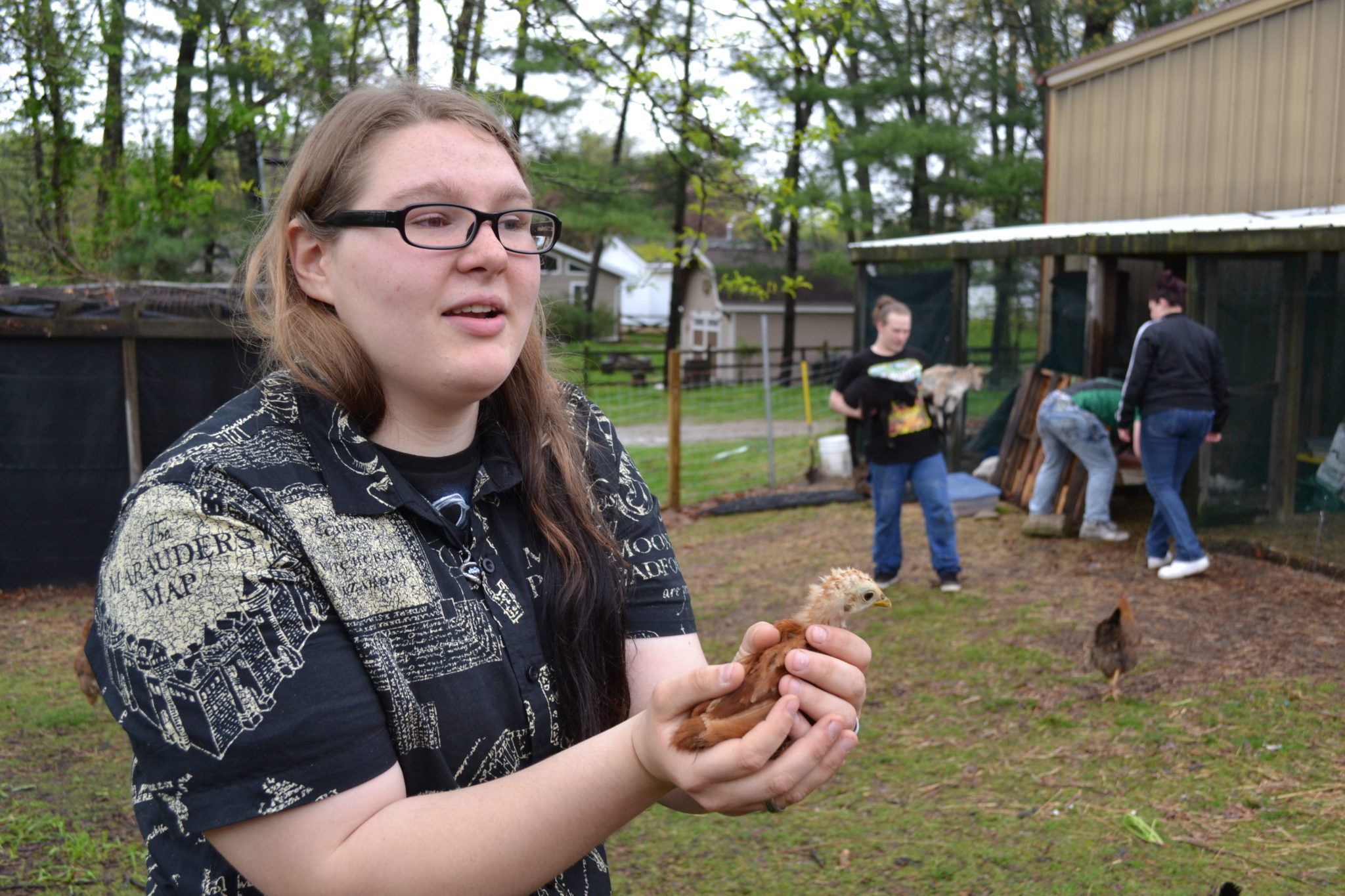“A school full of animals and plants; that doesn’t sound normal. But once you come here, and experience it, you realize how amazing it is.”
– Teague Tafelski
The Toledo Natural Science Technology Center is anything but normal. Since 1975, it has been a part of Toledo Public Schools career tech program, offering students a hands-on education in environmental and natural science.
Their problem and inquiry based approaches toward Animal Science, Landscape and Turf, and Urban Agriculture attract students from six area high schools to spend the first half of their school days surrounded by plants and animals.
“As recently as 5 years ago, our enrollment here was down,” explains Tom Dimitrew, Toledo Public Schools’ Career Tech Director. Recently, though, things have changed.
“We’ve had an influx of a dynamic, young staff over the past three years. The district has really recognized increasingly what an incredible resource we have here, particularly in the context of urban education.”
Plenty of students were excited to talk about their projects, all detailed in the slideshow below.
Chelsea Brogan and Jenna Lofgren raised a flock of quail. “We wanted to know what food would grow them up the fastest and the cheapest,” explains Jenna. “Turns out it was chick food.”
While the quail can be used as feeders for some of the other animals at the school, their eggs are in high demand at local farm-to-table restaurants like Fowl and Fodder. They’ve already shipped out their first batch.
This approach is not unique at NSTC. Both environmentally and economically, everything at NTSC is about sustainability. When students conduct studies on animals and plants, the outcomes help sustain the school’s ecosystem and provide products to the community.
On the other side of the building, Bryan Ellis shows off the school drone as part of the agriculture program.
“I can basically fly this unit over any field and, based on the data, the colors that are returned, I can tell you if your crops are nutrient deficient in anything,” he says. “What this has done is tied my program to industry in a way that no other school ever has”
Students used this drone to evaluate runoff on their 10 acres, then developed a plan to mitigate their impact on the local water supply. These evaluations are in high demand, and Ellis has already secured several contracts with local farms.
“Two students have their pilots license for this thing already.”
“This is where it becomes amazing for me,” says Charlette Hornyak, “because I hated regular school; sitting down at the desk, being bored, not being able to move around.”
Hornyak is the President of Toledo’s chapter of the FFA, and with an agriculture job already lined up for her after graduation.
“This is science you can touch… This is science you can feel and see and eat.”
“You actually get to experience what you’re learning,” comments fellow student Teague Tafelski. “I can’t think of anything else I’d rather do with my day than be here.”
School administration has only see enrollment go up in the past few years, and it shows no sign of stopping. Next year, they will pilot a brand-new Wildlife and Sustainability program. Students are excited.
“They’ve gone back to their home schools and recruited,” mentions Bryan Ellis, “so it looks like it’s going to be pretty full.”


